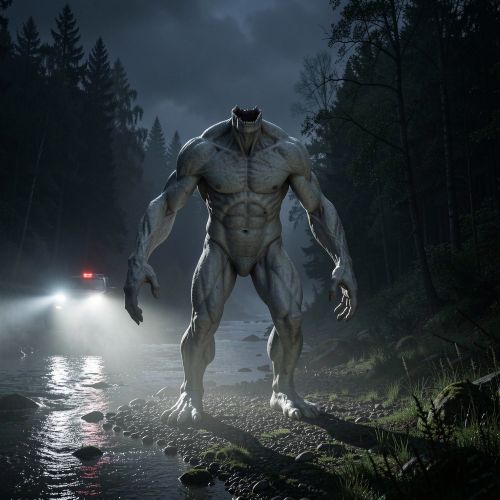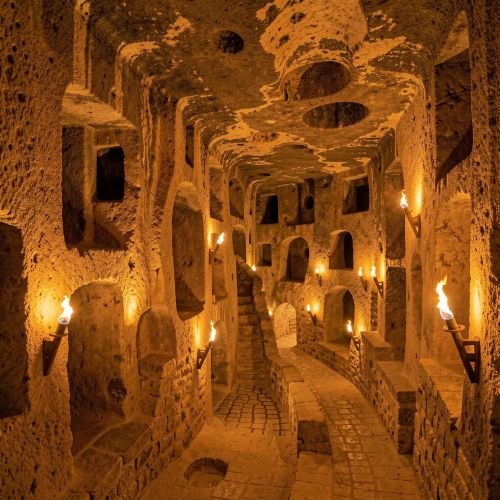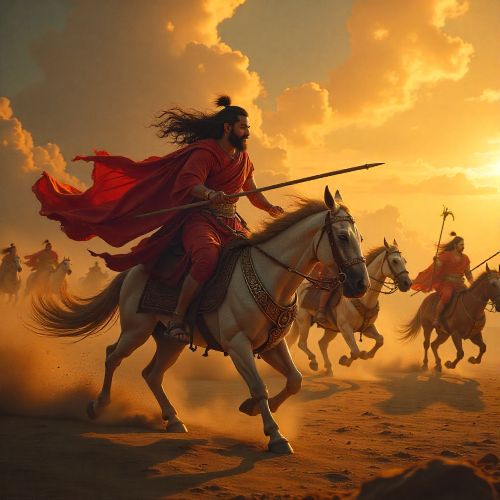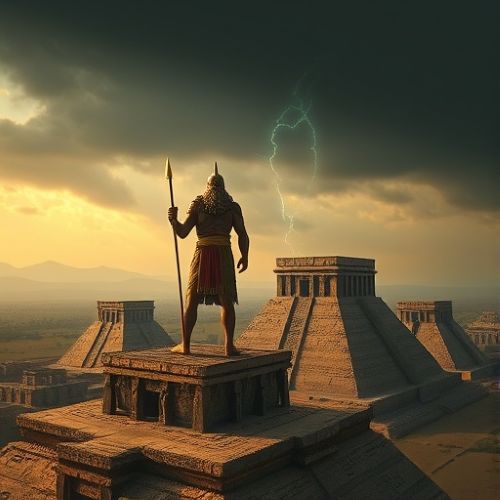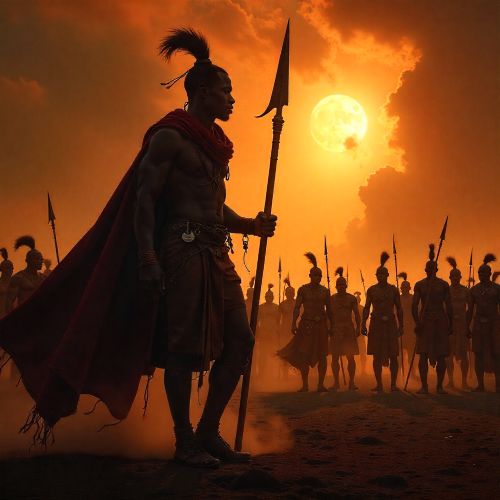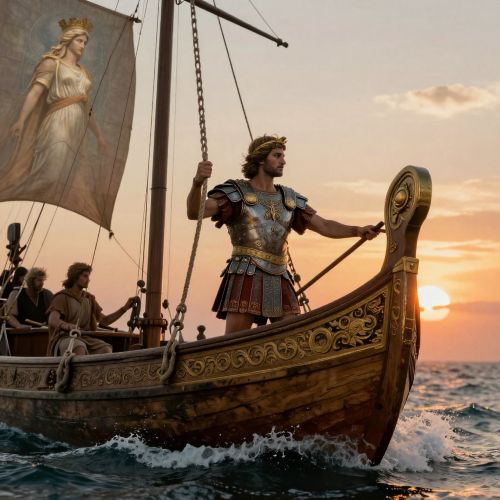The Iliad : Rage, Honor, and the Cost of Glory
Listen
At a glance
| Attribute | Description |
|---|---|
| Mythology | Greek Mythology |
| Language Written | Ancient Greek |
| Age | ~2750 years |
| Author | Homer |
| Main Characters | Achilles, Hector, Agamemnon, Patroclus, Priam |
Mythlok Perspective
From the Mythlok perspective, The Iliad is not a celebration of war but an exposure of its emotional violence. Rage becomes the true antagonist, consuming heroes and hollowing victory. Glory is shown as fleeting, while loss is permanent, etched into both victors and the defeated. Across cultures, this tension recurs. Like Gilgamesh confronting mortality or Arjuna’s crisis on the battlefield, Achilles reveals how unchecked pride transforms strength into self-destruction.
The Illiad
Introduction
The Iliad, composed by the ancient Greek poet Homer around the 8th century BCE, stands as one of the greatest literary masterpieces in human history. Set during the final weeks of the Trojan War, the epic weaves together human emotion, divine intervention, and the pursuit of immortal glory. Centered on Achilles’ wrath and its devastating consequences, The Iliad transcends its mythic setting to explore timeless questions about pride, honor, mortality, and the cost of war. It is both a mirror to ancient Greek values and a universal reflection on the human condition.
Historical Background
Though The Iliad recounts events of the legendary Trojan War—traditionally dated around the 12th or 13th century BCE—it was composed several centuries later, around 750 BCE. Archaeological discoveries at Hisarlik in modern-day Turkey confirm the existence of a city that may have inspired Troy, but Homer’s narrative blends historical memory with myth and oral tradition.
Homer, believed to be a bard from Ionia, inherited centuries of oral storytelling, shaping them into a unified poem that defined Greek identity. The poem reflects a fusion of Mycenaean war culture and early Greek religious thought. Its use of dactylic hexameter and rich imagery transformed oral legend into enduring literature, influencing generations of poets, philosophers, and dramatists across Greece and Rome.
Synopsis & Themes
The Iliad begins in the ninth year of the Trojan War, not with the war’s beginning or end, but with a bitter conflict between two Greek leaders—Achilles, the unmatched warrior, and Agamemnon, the proud commander of the Achaean forces. When Agamemnon seizes Achilles’ war prize, the captive Briseis, the insulted hero withdraws from battle in fury, leaving the Greek army weakened. His absence allows Hector, the noble prince of Troy, to lead his troops to a series of victories that drive the Greeks back toward their ships and nearly destroy them.
The turning point comes when Achilles’ closest companion, Patroclus, dons his armor to inspire the Greeks and is slain by Hector. Overcome with grief and rage, Achilles abandons his bitterness toward Agamemnon and returns to the battlefield, thirsting for vengeance. His wrath drives him to slay Hector in a brutal duel and defile his body in rage. Yet the poem’s conclusion is not triumph but reconciliation. King Priam, Hector’s father, bravely visits Achilles’ camp to beg for his son’s body. Moved by Priam’s grief and reminded of his own mortality, Achilles relents and returns the body for proper rites. The Iliad ends with Hector’s funeral, not the fall of Troy, emphasizing compassion over conquest and the fragile humanity that persists even amid devastation.
At its heart, The Iliad is a profound meditation on the destructive power of wrath and the pursuit of honor in a world ruled by fate. Achilles’ anger, or mênis, drives much of the tragedy, showing how pride can both define and destroy a hero. The ancient Greek ideal of kleos, or glory, fuels every warrior’s actions—the desire to achieve immortality through remembrance, even at the cost of life itself. Fate is ever-present, binding both mortals and gods. Though the Olympian deities intervene constantly—Athena aiding the Greeks, Apollo supporting the Trojans—even they cannot alter destiny’s course. Achilles knows that returning to battle will bring his death, yet he chooses eternal fame over safety, proving that heroism often lies in embracing one’s fate rather than escaping it.
The poem’s power also lies in its humanity. Death is not portrayed as defeat but as the measure of what gives life meaning. Mortality distinguishes humans from gods and makes every act of courage, love, and loss deeply significant. The meeting between Achilles and Priam, two enemies united by shared grief, captures this theme perfectly. Their compassion transforms vengeance into understanding, revealing that even in war, empathy can transcend hatred.
While The Iliad portrays the valor and glory of battle, it never glorifies war itself. Homer presents its horror and futility with unflinching honesty—the blood, the mourning, and the sorrow that follow every act of heroism. Yet within that chaos, he also finds nobility, dignity, and love. The poem closes not with victory but with a funeral, reminding readers that the greatest triumphs are not those won in combat, but those found in humanity’s capacity for forgiveness and grace.
In the end, The Iliad is not a tale of conquest but of character. Through Achilles’ wrath, Hector’s honor, and Priam’s courage, Homer explores the eternal balance between pride and mercy, glory and loss. Beneath its armor of gods and warriors lies the universal truth that defines all human existence—the search for meaning in the face of fate.
Key Characters
Achilles, the son of the mortal king Peleus and the sea goddess Thetis, stands as Greece’s greatest warrior and the central figure of The Iliad. His unmatched strength and skill in battle are rivaled only by his pride and temper. Achilles’ wrath drives the poem’s central conflict, shaping the fate of both Greeks and Trojans. Yet beneath his divine heritage lies a deeply human heart. His grief over the death of his beloved companion Patroclus exposes his vulnerability and reveals that even the mightiest hero is not immune to sorrow and compassion.
Agamemnon, the powerful king of Mycenae and commander of the Greek army, represents authority, ambition, and pride. His arrogance and sense of entitlement ignite Achilles’ anger and lead to the latter’s withdrawal from the war, nearly bringing ruin upon the Greeks. Agamemnon’s character embodies the dual nature of leadership—its capacity for unity and its susceptibility to corruption. Through him, Homer examines the fragile balance between personal ego and collective responsibility in times of war.
Hector, the noble prince of Troy and its greatest defender, is the moral and emotional heart of the Trojan side. As a warrior, husband, and father, he fights not for personal glory but for duty, honor, and the protection of his family and city. His duel with Achilles is one of the most poignant and tragic moments in all literature, symbolizing the inevitable collision between courage and fate. Hector’s heroism lies in his humanity—his awareness of impending death and his unwavering commitment to what is right despite it.
Patroclus, Achilles’ closest companion, plays a vital emotional role in the epic. His decision to enter the battlefield wearing Achilles’ armor shifts the course of the war and leads to his death at Hector’s hands. Patroclus’ fall becomes the catalyst that transforms Achilles’ anger from wounded pride into devastating vengeance. His friendship with Achilles underscores the poem’s exploration of loyalty, love, and loss, offering a rare moment of tenderness amid relentless conflict.
Priam, the aging king of Troy and father of Hector and Paris, is a figure of dignity, compassion, and humility. His journey to the Greek camp to beg Achilles for his son’s body is one of the most moving scenes in the poem. Confronting his enemy with courage and grace, Priam appeals to Achilles’ sense of empathy, reminding him of his own father. This act of reconciliation stands as the emotional resolution of The Iliad, revealing that humanity can endure even in the face of unbearable grief.
Helen, once queen of Sparta, is both the cause and the conscience of the war. Her abduction by Paris, whether by choice or by the will of the gods, sparks the decade-long conflict between Greece and Troy. Yet within the poem, she is portrayed with complexity—neither villain nor victim alone. Aware of the destruction her beauty has caused, Helen is haunted by guilt and sorrow, embodying the tragic consequences of desire, destiny, and divine manipulation.
The gods—Zeus, Hera, Athena, Apollo, and others—hover constantly over the mortal battlefield, influencing outcomes according to their whims and rivalries. Their interventions shape the course of the war, but they also mirror the flaws and emotions of the humans they govern. Through their actions, Homer blurs the line between divine will and human choice, emphasizing the theme of fate that governs both gods and mortals alike. The divine presence in The Iliad serves not to distance the story from humanity but to magnify it, revealing that even in the realm of the gods, pride, love, jealousy, and vengeance reign supreme.
Cultural & Religious Significance
For ancient Greeks, The Iliad was far more than a heroic tale—it was a moral and spiritual compass. The epic illustrated the ancient concept of areté (excellence), guiding warriors, rulers, and citizens alike in the pursuit of honor and virtue. It also depicted the reciprocity between mortals and gods, a core belief in Greek religion.
Recitation of Homer’s verses was integral to Greek education, shaping their sense of ethics, patriotism, and identity. The characters of Achilles, Hector, and Priam became archetypes of heroism, compassion, and humility. The epic’s influence extended beyond Greece, inspiring Roman poets like Virgil and philosophers like Plato and Aristotle. Even today, its reflections on pride, destiny, and mortality remain profoundly relevant.
Modern Adaptations
The timeless themes of The Iliad continue to inspire countless reinterpretations. In literature, Madeline Miller’s The Song of Achilles reimagines the story through the lens of love and companionship, while Caroline Alexander’s translations bring new linguistic depth to Homer’s verse.
In cinema, Wolfgang Petersen’s 2004 film Troy brought Homer’s heroes to the modern screen, though with artistic liberties. The BBC miniseries “Troy: Fall of a City” (2018) revisited the epic with a fresh perspective on race, politics, and divine influence.
Stage adaptations such as Lisa Peterson’s An Iliad distill the epic into a single narrator’s lament on the timelessness of war. Even in video games, literature, and graphic novels, Homer’s world continues to thrive, proving that the rage of Achilles and the fall of Hector still echo through human imagination.
Source
Homer. (2024). The Iliad: Study Guide. SparkNotes. https://www.sparknotes.com/lit/iliad/
Long, M. (2025). An Introduction to the Iliad. Substack. https://matthewmlong.substack.com/p/an-introduction-to-the-iliad
World History Encyclopedia. (2017). Iliad. https://www.worldhistory.org/Iliad/
Mythology Unbound. (2021). The Iliad – An Introduction. UEN Pressbooks. https://uen.pressbooks.pub/mythologyunbound/chapter/the-iliad-an-introduction/
Scribd. (2025). The Iliad Thesis Paper. https://www.scribd.com/document/yyyyyy/The-Iliad-Thesis-Paper
University of Vermont. Narrative background to Iliad. https://www.uvm.edu/~classics/writings/iliad_background.html
Wikipedia contributors. (2025). Iliad. Wikipedia. https://en.wikipedia.org/wiki/Iliad
Knox, B. (1990). The Oldest Dead White European Males and Other Reflections on the Classics. W. W. Norton & Company.
Schein, S. L. (1984). The Mortal Hero: An Introduction to Homer’s Iliad. University of California Press.
Taplin, O. (1992). Homeric Soundings: The Shaping of the Iliad. Oxford University Press.
Graziosi, B., & Haubold, J. (2005). Homer: The Resonance of Epic. Duckworth.
Frequently Asked Questions
What is The Iliad mainly about?
The Iliad focuses on Achilles’ wrath during the Trojan War, exploring how pride, fate, and human emotion shape the conflict’s tragic outcome.
Who wrote The Iliad?
It is traditionally attributed to Homer, a blind poet from ancient Greece, who compiled oral traditions into a unified epic around the 8th century BCE.
Does The Iliad include the Trojan Horse?
No. The famous episode of the Trojan Horse appears in later works like The Aeneid, not in The Iliad. The poem ends with Hector’s funeral.
What are the main themes of The Iliad?
Major themes include wrath, honor, fate, divine intervention, mortality, and the human cost of war.
Why is The Iliad still important today?
Its exploration of emotion, heroism, and moral conflict transcends time, influencing modern literature, philosophy, and storytelling across the world.



